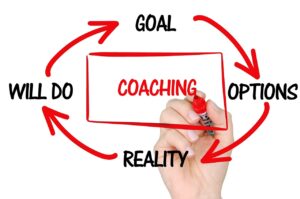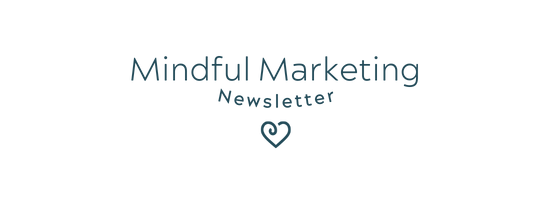If you’re an executive looking to hire a coach, you probably first need to know: how much does executive coaching cost?
Here’s an update for 2023…
Are you a coach looking to get your first or next client? Then you might check out this post.
Table of Contents
ToggleHow much does executive coaching cost?
The cost of executive coaching can vary significantly based on several factors. For example:
- Years of experience: including both coaching experience and/or prior experience in your field. In many cases, new coaches charge less than experienced professional coaches.
- Reputation: since coaching is usually a significant investment for a small business, reputation is one of the important factors for pricing
- Coaching packages: Some coaches charge an hourly rate for coaching sessions. However, most offer packages, and a variety of factors influence what package feels right for the client. Some create packages with a set term, and some may offer retainer agreements.
Best Practices for Packages
When finding the right coach for you, consider what package and what inclusions works best for you and your business. The amount of support impacts the coaching fees.
Looking on details for creating a 3-month coaching package? Check out this post.
Packages can include or be impacted by…
- The duration of the coaching engagement: generally speaking, longer engagements may charge less per session, since you’re buying more volume. I personally love working with clients long time. Working with one person for a while is a great way to work towards reaching your full potential. (Because like a great coach knows, big transformation doesn’t happen overnight.)
- The format of the coaching: Does your coach meet via phone call? Zoom session? In person? Make sure the format of the call feels aligned for you.
- Ongoing support: Is there support between calls via email or other messenger apps? Is there support after the initial coaching engagement?
- Team support: Do you need the coach to also meet with your direct reports, middle managers, or others on your team? This option especially supports large organizations and startups.
- Individual coaching versus group coaching: Group coaching makes some coaching packages more accessible, lowering the average price. When the coach serves more than one client at the same time, they create leverage for their time.
- Implementation and management support: If you need help actually getting things done, you may consider an integrator or fractional management role. Read more about that here.
Typical Rates for Executive Coaching
So, how much does executive coaching cost?
Typically, executive coaching rates can range from approximately $200 to $500 per hour.
Sometimes more for highly experienced or specialized coaches. Some coaches charge a flat fee for a coaching package that includes a set number of sessions. And some charge a flat fee for a particular program.
Executive coaching engagements range from a few sessions to longer-term arrangements that last several months or even a year. The length of the engagement depends on the objectives and requirements of the executive and the organization. The length also depends on the assets available for the client in terms of team, financial resources, and ability to implement.
Make sure you research and interview potential coaches (more on that below). Checkout their websites, social, and any other info you can find. Understand their approach, experience, and the structure of their services for determining the best fit. Many coaches offer a free consultations where you discuss goals and needs. This allows both parties time for assessing the potential for a successful coaching relationship.
Also, within a company, some organizations might have in-house coaches or programs that cater to executive development as part of their professional development initiatives, reducing costs compared to hiring external coaches.
Always consider that while cost is an important factor, the most critical consideration should be the coach’s expertise, fit with the coachee, and the potential outcomes of the coaching engagement.
What are the different types of executive coaching?
Leadership coaching: Leadership coaching focuses on helping executives specifically in their role as leaders.
Life coaches: Life coaching focuses ore on personal development and transformation, which often directly impacts businesses.
Career coaches: Career coaching helps executives gain clarity in their career path, career goals, and the path to get there.
Business coaches: Business coaching helps business owners get support around scaling their business.
Creative coaches: Creative coaching is a specific segment of personal development coaching, and can help with problem solving and learning to tap into your intuition. Read about creative coaching.
What else goes into pricing an executive coaching package?
Several other factors contribute to the pricing of an executive coaching package:
Complexity and Scope of Coaching:
The depth of the coaching required, such as addressing complex leadership challenges, team dynamics, or organizational change, might influence pricing. Personalized coaching programs designed to meet specific needs or challenges of an executive will often have higher costs compared to standard or general coaching programs.
Value and Return on Investment:
Coaches who can demonstrate a significant impact on an executive’s performance, leading to tangible business outcomes, might justify higher costs due to the perceived value they provide.
Overheads and Administrative Costs:
Some coaches might have overhead costs associated with running their practice, which can influence their pricing. Coaches offering supplementary resources, assessments, or tools as part of their coaching package might charge more for these additional materials or services.
Market Demand:
In regions or industries where there’s a high demand for executive coaching, prices might be relatively higher.
Guarantees or Specialized Services:
Some coaches offer guarantees or specialized services (such as crisis management, specific industry expertise, etc.) that may justify higher pricing.
When determining the pricing for an executive coaching package, coaches often take a holistic view, considering these factors and tailor their pricing based on the value they bring to the client, the specific needs of the individual or organization, and the level of expertise they offer. The goal is to find a balance that reflects the value of the service being provided while being fair and competitive within the market.
What are some trends in regards to executive coaching over the years?
Several trends have emerged in the field of executive coaching over recent years:
- Focus on Leadership Development: There’s a growing emphasis on developing leaders at all levels within an organization, not just top executives. Coaching is being utilized as a tool to enhance leadership skills throughout the hierarchy.
- Emphasis on Emotional Intelligence and Soft Skills: Executive coaching has increasingly focused on developing emotional intelligence, communication, empathy, and other soft skills that are essential for effective leadership and team management.
- Technology Integration: Technology is playing a more significant role in coaching, with the integration of virtual coaching platforms, apps, and tools that facilitate coaching interactions and provide additional resources for executives.
- Wellness and Work-Life Balance: Coaching is increasingly addressing holistic well-being, stress management, and work-life balance to help executives navigate the complexities of their roles while maintaining personal health and fulfillment.
- Data-Driven Coaching: Coaches are using more data and assessments to track progress and measure the impact of coaching interventions, providing a more evidence-based approach to coaching outcomes.
- Integration of Behavioral Science and Psychology: Coaches are drawing more from behavioral science and psychological principles to help executives understand their behaviors, motivations, and decision-making processes.
- Sustainability and Social Responsibility: Coaching is increasingly addressing sustainability, social responsibility, and ethical leadership, as organizations prioritize these values in their operations.
These trends reflect the evolving nature of executive coaching, adapting to the changing needs of both organizations and individuals in a dynamic business landscape. They highlight the expanding role of coaching beyond traditional skill development to encompass a broader range of personal, interpersonal, and societal factors that impact leadership effectiveness.






